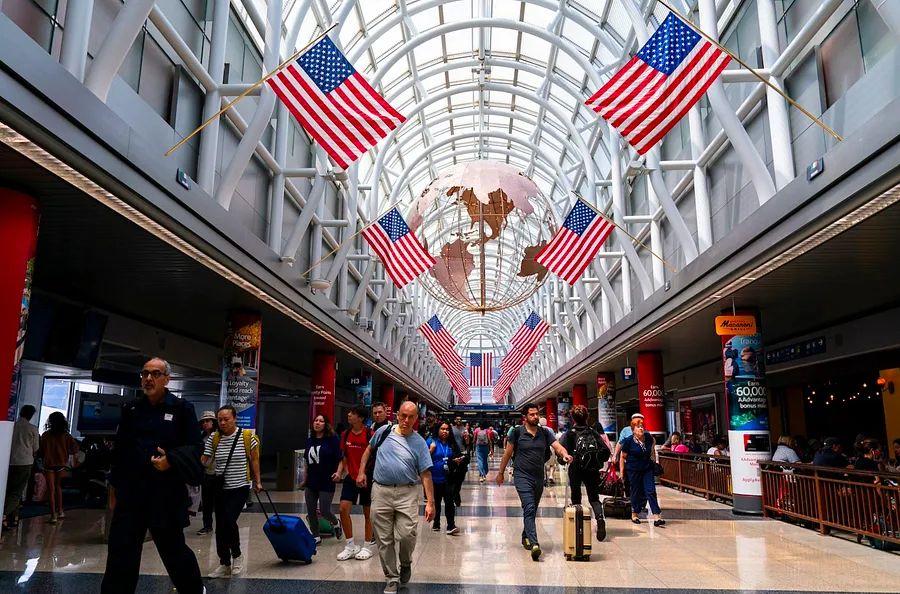The Biden administration highlights new airline refund regulations in a renewed effort for 'more straightforward customer service'


Building on initiatives to eliminate travel and credit card fees, the Biden administration is taking action against corporations' 'unfair practices' that 'create unnecessary frustrations and hassles,' according to recent statements from the White House.
Named "Time is Money," this initiative encompasses several measures the administration claims will 'save Americans both time and money,' including fresh airline refund regulations expected to come into effect soon.
In a press release dated August 10, the administration outlined two new rules from the Consumer Financial Protection Bureau regarding artificial intelligence, one requiring companies to enable customers to reach a human representative with just a click, thereby helping to avoid customer service 'doom loops.' A second rule would identify unlawful automated chatbots or AI voice recordings, particularly when customers mistakenly believe they're speaking to a live person.
An agency spokesperson stated that the CFPB's authority is limited to consumer financial products, meaning the rules won't apply to hotels or airlines. "The Consumer Financial Protection Bureau (CFPB) will begin a rulemaking process requiring companies within its jurisdiction to allow customers to speak to a human by pressing a single button," the White House noted in a fact sheet. According to the CFPB, entities under its jurisdiction include banks such as Chase, Citibank, and Wells Fargo, which provide credit cards.
Stay updated on the latest travel news and offers by subscribing to our daily newsletter.
"The CFPB has long been aware of customer service frustrations in banking—ranging from getting stuck in phone tree loops to difficulties with bank chatbots," a CFPB representative stated via email. "The CFPB aims to simplify the process for consumers to bypass recordings or AI and connect with a human for resolving customer service matters with their financial institutions."
Around 37% of Americans engaged with a bank's chatbot in 2022, as reported by CFPB data.
"Much of the industry relies on basic rule-based chatbots that use decision tree logic or keyword databases to deliver preset, limited responses or direct customers to Frequently Asked Questions," the CFPB representative explained. "Some institutions have developed their own chatbots by training algorithms with actual customer interactions and chat logs. The banking sector has recently started adopting advanced technologies, such as generative chatbots, to enhance customer service capabilities."
A new rule from the Federal Trade Commission will ban deceptive review and endorsement practices, including the use of fake reviews, hiding genuine negative reviews, and compensating for positive reviews.
"This regulation could significantly influence the travel sector," a White House representative stated via email. "Agencies are starting to implement these initiatives, and we expect to see progress throughout the year."
Furthermore, the Biden administration highlighted legislation already passed regarding airline refunds, emphasizing in the press release a rule mandating that airlines automatically issue refunds when a traveler is entitled to one due to flight cancellations or substantial delays, regardless of the circumstances.
"This rule prevents airlines from altering their policies to complicate the refund process when they fail to deliver and mandates they inform you when you're eligible for a refund," the press release from August 10 stated. "The DOT's regulation also eliminates airline runarounds by ensuring refunds are automatic, timely, processed in the original payment method, and for the full amount paid." This rule, included in the 2024 Federal Aviation Administration Reauthorization Act, is set to take effect in October.
The White House has proactively engaged with airlines and other private sector entities as part of a broader initiative to protect consumers from "junk fees." For instance, the DOT recently implemented a rule regarding family seating on commercial flights and has advocated for consumer protections during disruptions.
In late April, the department also introduced a regulation requiring airlines to disclose add-on fees more transparently, although a federal appeals court has temporarily halted this requirement.

1

2

3

4

5
Evaluation :
5/5